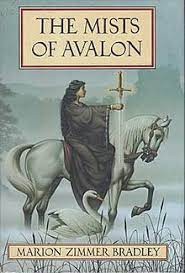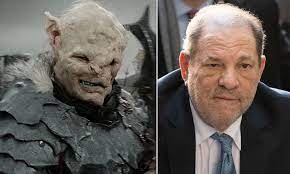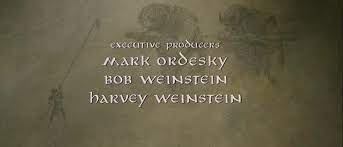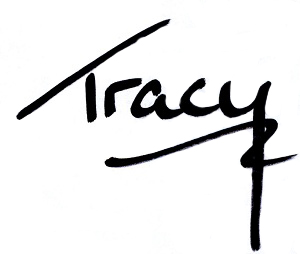
When The Mists of Avalon came out in 1982, I was right there at the bookstore to grab my copy. A story about King Arthur? Count me in.
I read the book, loved it, and put it on my keeper shelf. There was a TV mini series made of the book and I watched that, too.
Then, a few years later, I learned that Marion Zimmer Bradley was a serial abuser of children, which sickened me to the core.
I haven’t read the book since, nor any of her other books. I just can’t bring myself to it. I’ve never bothered trying to replace the copy of The Mists of Avalon that I was forced to leave behind in Australia, when I moved to Canada.
One of the authors I worked hard to re-acquire when I got to Canada was Desmond Bagley, an English author of classic suspense thrillers published between 1963 and 1985. I had all his books, in Australia.
But I wanted ebooks this time around, and it took a while for them to be re-issued as ebooks. So there was a long period of time when I didn’t get to read Bagley at all.
Then I obtained a copy of Flyaway, which was a favorite for its descriptions of travelling across the Sahara. I settled in to read it, and found myself gob-smacked, a quarter of the way into the book, when the hero of the story hit his wife to shut her up.
I haven’t gone back to the book since. I didn’t finish it. I couldn’t.
And I was appalled that I didn’t remember this scene from earlier readings. Why had it not stuck in my mind, outlined in neon?
What Do You Do When Authors Misbehave?
I actually don’t have any easy answers regarding this relatively modern quandary for readers and consumers of stories. It doesn’t help that I’m an author myself.
Prior to the Internet and indie publishing, traditional publishers would do their best to make sure their authors presented the most pleasing face to the public. Indiscretions were tucked away, scandals given a moral spin, and photos were airbrushed to death.
Now we live in a culture of full disclosure and cancelling, #metoo and more. The lives of authors and creators can be disclosed for the world to see, voluntarily or not, and with dirty laundry included.
Which leaves us, the readers and consumers of stories, with a judgment call to make.
I do wrestle with the issue.
Should we judge the work of creatives who are flawed and human by how they conduct their lives? Or should the work be considered in isolation, purely for the quality of the story itself?
And if we consume stories created by authors with serious moral flaws, such as Marion Zimmer Bradley, are we rewarding the authors for their faults? How much of that dark facet of their nature influences the fiction they create? And do we want to financially support that dark nature?
And how far do you take that judgment? I’m an author. And I have some weaknesses and bad habits of my own. If you learned that I was once a prom queen and you hate prom queens, would you stop reading my stories? Would you feel obliged to not read them?
Time is also a factor, here. Desmond Bagley’s Flyaway was written when standards were different. A man hitting his wife, if she provoked him, was sometimes considered justified (and oh, how that leaves a bad taste in my mouth, just typing it out!). Clearly, Bagley thought it was a perfectly acceptable action by the hero of the story. So this was a moral standard he held.
Should I judge his work and refuse to read it because of morals he held over thirty years ago, that are out of touch with modern ideals?
Or does he get a pass because he was writing in a different era?
It’s a difficult issue, isn’t it?
I ran into this wall in 2018, when Harvey Weinstein was arrested and charged with multiple counts of rape and sexual abuse. I was horrified by the stories that came tumbling out about him, revealing a man with a brutal nature.
My quandary was that he was one of the executive producers of Lord of the Rings, only my favourite movie trilogy of all time, ever. It even squeezes Star Wars out of the top spot, for me.
I actually had to sit down and think it through. Should I stop rewarding him financially with his 1.2% of the gross by refusing to consume the movies?
It isn’t as though the man had any creative influence over the movies. (Although I found out later that he did have some influence — by whispering to Peter Jackson about some actresses being “trouble”, he prevented those actresses from being considered for roles in the movies.)
Weinstein bank-rolled the trilogy, in part, but Peter Jackson resisted his creative directions, refused to squeeze the story into just two movies, and more.
When the #metoo revelations were made public, Jackson also went public with how much he had resented Weinstein’s heavy-handed meddling. An orc was created based upon Weinstein’s less than attractive visage, as a reverse homage to the man.

And in the final credits at the end of the third movie, while everyone else got line drawings of happy events in the movie, Weinstein got dark orcs in the background:

So does that make it okay to watch the movies, knowing that Weinstein’s influence was minimal?
And do I replace my nearly-dead CD set with a newly remastered set and put more pennies in the man’s pocket?
I still haven’t come to a decision about this.
I still watch the movies every Christmas, and will likely continue to do so, simply because the story has had such a huge impact to my writing career. But buying a new copy of the movies…well, I just don’t know.
There are no easy answers
I suspect that for me, and for you, a judgment call will need to be made on a case by case basis. And how I judge and decide could be completely different to where you end up.
I simply stopped reading Marion Zimmer Bradley altogether.
Bagley, I approach on a book by book basis, and proceed with caution. I’ll probably never read Flyaway again, nor the follow up book that featured the same hero, Windfall. The hero is not a hero in my eyes, anymore.
I’ll have to get back to you about Lord of the Rings, because I’m still trying to sort that one out. Plus, do I stop consuming any Miramax movie? Weinstein had far more creative input into the movies his production company bankrolled, than he managed to wield over Lord of the Rings (thank goodness!).
Where do I draw the line?
Where do any of us draw the line? Should we even be holding the personal flaws of creatives up for judgment at all?
You tell me.
